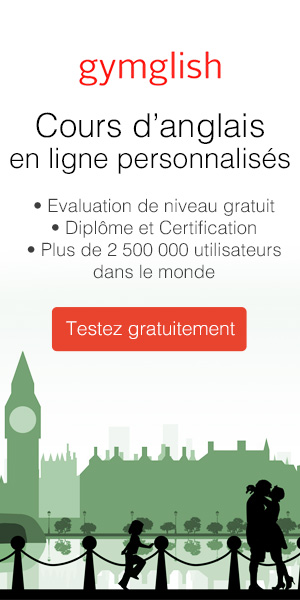Utiliser can et can’t en anglais
GAGNEZ DU TEMPS ! TÉLÉCHARGEZ EN UN CLIC LE PACK COMPLET: 70 FICHES DE GRAMMAIRE + LES TEMPS EN PDF
PLUS D'INFOS_
_
Can en anglais
Can exprime une possibilité, une capacité, ou l’aptitude du sujet, ou bien une permission. On peut le traduire en français par pouvoir ou savoir.
Can’t (ou cannot, en un seul mot) est sa forme négative et exprime une incapacité. À la forme interrogative, il faut placer Can… en début de phrase.
1. Exprimer une capacité ou incapacité
Can et can’t servent à dire que quelque chose ou quelqu’un peut ou ne peut pas être capable de faire quelque chose:
- He can sing. → Il sait chanter.
- She can speak Chinese fluently. → Elle peut parler chinois couramment.
- I can’t swim. → Je ne sais pas nager.
- Can you play the guitar? → Peux-tu jouer de la guitare ?
- I’m afraid I can’t come to work on Tuesday. → J’ai bien peur de ne pas pouvoir aller au travail ce mardi.
2. Exprimer une possibilité ou CARACTÉRISTIQUE OCCASIONNELLE
Dans ce cas il est utilisé à la forme affirmative:
- The river can be dangerous at times. → La rivière peut être dangereuse parfois.
- It can get hot there during the day. → Il peut faire chaud ici durant la journée.
- I know she can win the competition. → Je suis sûr qu’elle peut gagner la compétition.
- I think your drone can be repaired → Je pense que ton drone peut être réparé.
3. Pour Donner ou demander une permission ou un service
On peut aussi utiliser can’t pour refuser une permission:
- You can use my car if you want → Tu peux utiliser ma voiture si tu veux.
- Mum, can I go out now? → Maman, je peux sortir maintenant ?
- Can I ask you a question? → Je peux te poser une question ?
- Can I carry your luggage for you? → Puis-je porter ta valise ?
- You can go to the swimming pool if you like. → Tu peux aller à la piscine si tu veux.
4. Indiquer une interdiction avec can’t
- You can’t smoke in the restaurant. → Vous ne pouvez pas fumer dans le restaurant.
- We cannot park the car next to this fire hydrant. → On ne peut pas garer la voiture à côté de la bouche d’incendie.
- You cannot drive a car without a license. → Tu ne peux pas conduire une voiture sans permis.
5. Exprimer une certitude forte avec can’t
Dans ce cas, can’t est utilisé pour montrer que l’on est surpris, ou qu’on est sûr que quelque chose est faux au présent ou bien dans une situation passée, que ce soit un fait révolu ou une activité (la construction est différente dans les deux cas):
- It can’t be possible! → ce n’est pas possible !
- He can’t have been to Japan. → Ce n’est pas possible qu’il ait été au Japon. (construction: can’t + have + verbe au part. passé)
- He can’t have been drinking, he looked sober. → Ce n’est pas possible qu’il ait bu, il avait l’air sobre. (construction: can’t + have been + ing)
6. Can et verbes de perception
On utilise souvent can devant des verbes de perception: hear, see, smell, touch… (en général on ne le traduit pas en français):
- I can hear you but I can’t see you! → Je t’entends mais je ne te vois pas.
- We can see the beach from our hotel. → On voit la plage depuis notre hôtel.
- I can smell something burning. → Je sens quelque chose en train de brûler.
7. Could
Could est le prétérit de can. Il est considéré plus poli ou formel dans une demande:
- Could I have more tea, please? → Pourrais-je avoir plus de thé, svp?
Voir aussi: Comment utiliser could en anglais
8. Can ou be able ?
On utilise be able to lorsque can est impossible à utiliser:
- I’ve never been able to sing. → Je n’ai jamais pu chanter.
- I’d like to be able to forgive you. → J’aimerais être capable de te pardonner.
- Sorry for not being able to help you. → Désolé de ne pas pouvoir t’aider.
©Anglais-rapide.fr – ne pas recopier ces leçons sur d’autres sites !
